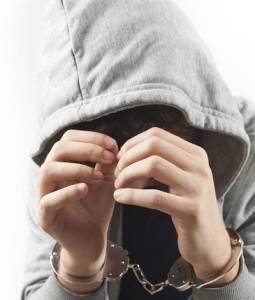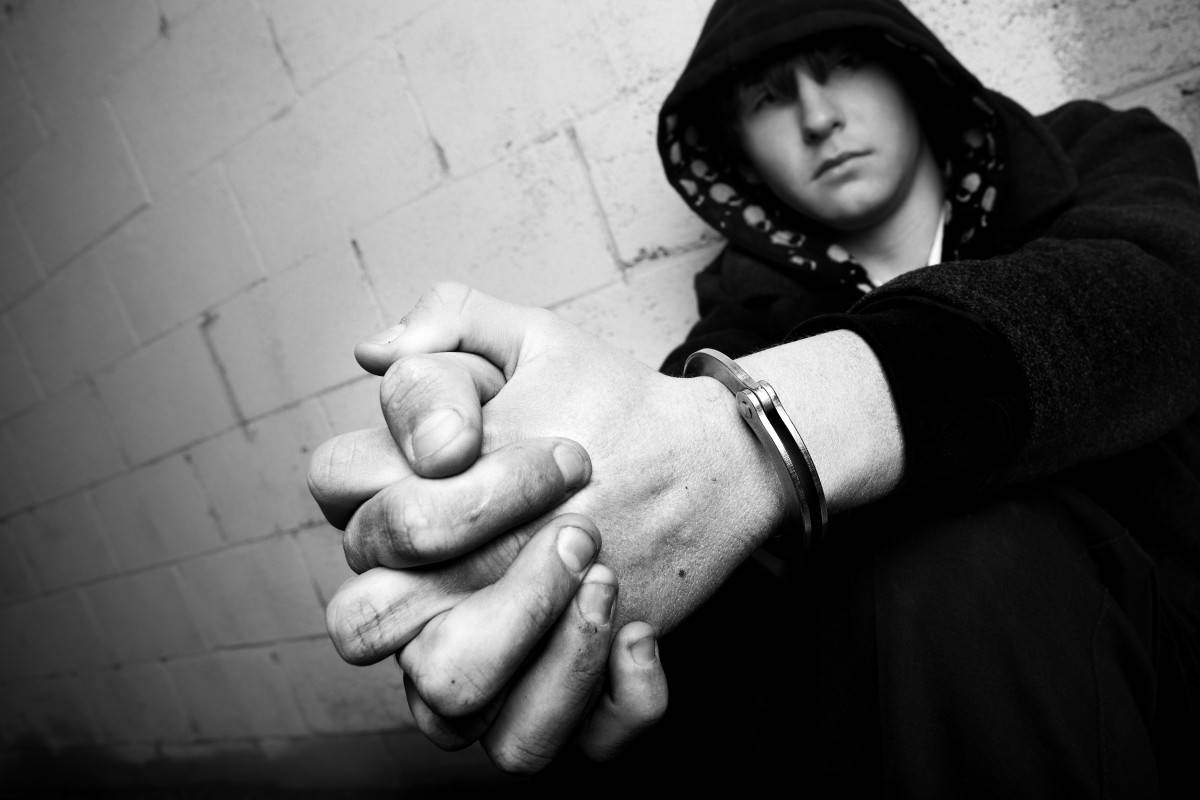When Can a Minor Be Tried as an Adult in California?

In California, minors who are arrested for committing a crime are generally not treated the same as adults. Crimes committed by minors are often adjudicated as delinquency matters in juvenile courts, which exist to rehabilitate rather than punish minor offenders.
However, a minor may face traditional criminal proceedings depending on the seriousness of the crime. While California law prohibits prosecution of children less than 14 years of age, in some situations a minor who is at least 14 years old may be tried as an adult. In fact, California law specifies certain crimes for which a minor 14 years and older must be prosecuted in adult court.
The Juvenile Justice Initiative
In March 2000, California voters approved Proposition 21, “The Juvenile Justice Initiative,” in response to highly publicized media reports to criminal street gang activity committed by teenagers. The law allows prosecutors to decide whether a minor at least 14 years old may be tried as an adult for certain defined crimes.
The law also specifies certain offenses for which minors will automatically be tried as an adult in criminal court, including murder if one or more special circumstances are alleged, and several sex offenses if the prosecutor alleges the minor personally committed the offense.
When Can Minors Be Tried as Adults?
Minors ages 14 to 17 may be tried as adults in a California Superior Court through any of the following procedures:
- A prosecutor may file a petition for a “fitness” hearing in juvenile court. If the juvenile court judge finds the minor “unfit” for rehabilitation, the minor will be referred for prosecution as an adult;
- Direct file in adult criminal court at the discretion of the prosecutor;
- Automatic trial as an adult for certain pre-determined aggravated offenses for an eligible minor.
What is a Juvenile Court Fitness Hearing?
A fitness hearing is a legal proceeding where a juvenile court judge decides whether a minor who has been accused of committing a crime is amenable to rehabilitation, or “fit” for the juvenile court system. A prosecutor may request a fitness hearing upon filing a fitness petition.
A juvenile court judge makes a determination of whether a minor is fit for juvenile court based upon an evaluation of the following five criteria:
- The degree of criminal sophistication exhibited by the minor.
- Whether the minor can be rehabilitated prior to the expiration of the juvenile court’s jurisdiction.
- The minor’s previous delinquent history.
- Success of previous attempts by the juvenile court to rehabilitate the minor.
- The circumstances and gravity of the offense alleged in the petition to have been committed by the minor.
If the judge decides that a minor is unlikely to benefit from the rehabilitative services of a juvenile delinquency court, the minor is transferred to adult court where he or she may be prosecuted according to traditional criminal proceedings.
When Can a Prosecutor File a Fitness Petition?
A prosecutor can initiate a fitness hearing when:
- A minor is at least 16 years old and is alleged to have committed any crime; or
- A minor is 16 years or older and has allegedly committed a felony where he or she has previously been made a ward of the court and found to have committed two or more felony offenses while over the age of 14. In this case, the minor is presumed to be unfit for juvenile court; or
- A minor is at least 14 years old and is alleged to have committed an offense specified in Welfare & Institutions Code 707(b). In this case, the minor is presumed to be unfit for adjudication in juvenile court.
What Crimes Qualify for Prosecution of a Minor as an Adult? (W&I Code 707(b))
California Welfare & Institutions Code Section 707(b), describes which crimes qualify for adult court when committed by a minor if the minor is found to be unfit for rehabilitation in juvenile court. “Section 707 (b)” offenses include:

- Murder;
- Arson causing great bodily injury or of an inhabited structure;
- Robbery;
- Rape with force, violence or threat of great bodily harm;
- Sodomy by force, violence or threat of great bodily harm;
- A lewd or lascivious act on a child under 14 with force, violence or threat of great bodily harm;
- Oral copulation by force, violence or threat of great bodily harm;
- Forcible sexual penetration;
- Kidnapping for ransom;
- Kidnapping for purposes of robbery;
- Kidnapping with bodily harm;
- Attempted murder;
- Assault with a firearm or destructive device;
- Assault by means of force likely to produce great bodily injury;
- Discharge of a firearm into an inhabited or occupied building;
- An offense described in Section 1203.09 of the Penal Code against a person who is over 60 or disabled;
- An offense described in Penal Code Section 12022.5: personal use of a firearm, or Penal Code Section 12022.53: California’s “10-20-life” or “use a gun and you’re done” law;
- A felony offense in which the minor personally used a weapon listed Penal Code Section 16590(a);
- A felony offense described in Penal Code Section 136.1: dissuading a witness, or Penal Code Section 137: bribing a witness;
- Manufacturing, compounding, or selling one-half ounce or more of a salt or solution of a controlled substance specified in Health & Safety Code 11055(e);
- A violent felony, which also would constitute a felony violation of Penal Code 186.22(b): criminal street gang sentencing enhancement;
- Escape, by the use of force or violence, from a county juvenile hall, home, ranch, camp, or forestry camp if great bodily injury is intentionally inflicted upon an employee of the juvenile facility;
- Torture;
- Aggravated mayhem;
- Carjacking;
- Kidnapping for purposes of sexual assault;
- Kidnapping during a carjacking;
- Drive-by-shooting described in Penal Code Section 26100;
- Exploding a destructive device with intent to commit murder; and
- Voluntary manslaughter.
What Crimes Automatically Trigger Prosecution of a Minor as an Adult? (W&I 602 (b))
California law pursuant to Welfare & Institutions Code Section 602 (b) requires that a minor at least 14 years of age or older must be tried as an adult for the following crimes:
- Murder with special circumstances if the prosecutor alleges that the minor personally killed the victim;
- Specified sex offenses if the prosecutor alleges that the minor personally committed the offense and other aggravating circumstances, including:
- Rape with force, violence or threat of great bodily harm (PC 261 (a)(2));
- Spousal rape with force, violence or threat of great bodily harm (PC 262 (a)(1));
- Forcible sex acting in concert with another (PC 264.1));
- Lewd and lascivious acts on a child under 14 involving force, violence or threat of great bodily injury (PC 288 (b));
- Forcible sexual penetration (PC 289 (a));
- Sodomy or oral copulation by force, violence or threat of great bodily injury (PC 286, 288a);
- Lewd and lascivious acts on a child under the age of 14 years (PC 288 (a)), unless the defendant qualifies for probation pursuant to Penal Code Section 1203.066.
What Consequences Can a Minor Face?

At worst, a minor adjudicated in juvenile court faces being committed to the California Department of Corrections, Division of Juvenile Facilities (formerly known as the California Youth Authority or “CYA”) until the age of 25.
However, a minor tried in adult court may be sentenced like any other adult, up to and including life in prison without the possibility of parole, depending on the seriousness of the crime.
A minor may not be sentenced to death under any circumstances.
Call Wallin & Klarich Today to Speak to a Juvenile Defense Attorney
If your child is facing criminal charges, you should speak with an experienced criminal defense attorney at Wallin & Klarich right away. You need to understand that while a juvenile is often entitled to avoid criminal prosecution as an adult, this is not always the case.
At Wallin & Klarich, our attorneys have over 40 years of experience successfully representing our juvenile clients facing the serious consequences of a criminal conviction. With offices in Orange County, Riverside, San Bernardino, Victorville, Los Angeles, West Covina, Torrance and San Diego, trust our highly skilled team of juvenile defense attorneys at Wallin & Klarich to make certain all of your child’s rights are protected.
Your family is important to us. We will do everything we can to help you and your child get the best result possible in his or her case.
Call us today at (877) 4-NO-JAIL or (877) 466-5245 for a free telephone consultation. We will get through this together.



